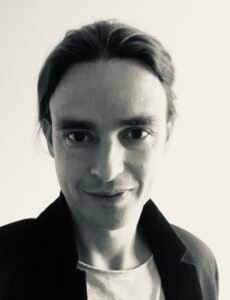Your cart is currently empty!
Science and Magic: A Disturbing Charming Braid

This is an excerpt from one of the presentations featured in the Pari Center’s event The Enchanted Universe, in Pari from August 29 to September 5, 2022.
with Alex Gomez-Marin
Many people today seem to tolerate real magic only if it is fake, and to denounce as fake magic that which purports itself as real. Modernity is disenchanted, or so it seems. Here I will explore and challenge the idea that science and magic ward each other off. Apart from drawing from current research in the life sciences and the philosophy of mind, we will revise some major stories hardly told, not only to the general public but to scientists themselves (Isaac Newton was a magician, Francis Bacon an alchemist, Wolfgang Pauli a mystic, Marie Curie participated in seances, William James searched for scientific a proof of life after death). In this way we may untangle a knot whereby what is exceptional has been presented as a rule, and vice versa. It may turn out that we do not need to re-enchant science and nature if we realize that modernity was never really disenchanted.

Dr Àlex Gómez-Marín is a theoretical physicist turned cognitive neuroscientist. He earned his PhD in Physics in 2008 from the University of Barcelona, where we studied the microscopic origins of the arrow of time. He also holds a Masters in Biophysics from the same university. He was a Juan de la Cierva Fellow at the EMBL-CRG Centre for Genomic Regulation where he investigated the neurobiology of action and perception in fruit flies, and a Postdoctoral Fellow at the Champalimaud Center for the Unknown in Lisbon, Portugal, where he deployed a computational ethology approach to establish neuro-ethological principles in worms, flies and mice. Since 2016 he is the head of the Behavior of Organisms Laboratory at the Instituto de Neurociencias in Alicante, Spain, where he has been a Ramón y Cajal Fellow, and where he currently is an Associate Professor of the Spanish Research Council. His latest research concentrates on consciousness and cognition in humans in real-world situations, combining high-resolution experiments with theoretical biology and continental philosophy. He is the author of a number of research articles, and he is shortly to publish his first book in Spanish on the ‘tales not told’ in current neuroscience. Born in Barcelona, he now lives in the Mediterranean coast of Alicante and has two daughters and a cat. You can follow him on social media at @behaviOrganisms and read his work here: https://behavior-of-organisms.org/read-us
